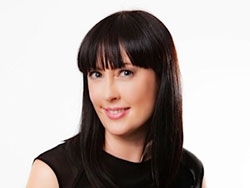Kangaroo lasagne and kangaroo rendang curry with bush tomatoes.
These dishes are proving to be a key ingredient to healthy living for some of Australia’s Aboriginal communities.
Subscribe for FREE to the HealthTimes magazine
Integratedliving Australia, a New South Wales-based home care provider, has teamed with renowned Indigenous chef Clayton Donovan, the star of ABC television program
Wild Kitchen, to prepare culturally-appropriate dishes for older people living in Indigenous communities.
The unique frozen meals program, launched late last year, is now reaching about 70 Aboriginal clients a week in NSW and Queensland.
There are also plans to grow the initiative after the provider’s clinical service team recently won the Team Excellence Award in the
2016 HESTA Australian Nursing Awards.
Integratedliving national clinical manager Bron McCrae, a nurse of almost 40 years, said the idea for the Indigenous meal program began when she met Clayton at a barbecue.
“I said - ‘I work in aged care and we have a meals program. It would just be so lovely to be able to come together and do something absolutely innovative’.
“We have a lot of difficulty getting meals into the Aboriginal community because they are just not suitable for them.
“These meals are actually far more nutritious with the bush tucker in them. We are using a lot of kangaroo meat so it’s a lot leaner and it gives the meal a lot more flavour.”
The menu, filled with bush tucker ingredients merged with western cuisine, has been a hit with the provider’s Indigenous and other consumers.
“The feedback from the elders was really fascinating…they indicated that most Aboriginals will add a lot of salt to the western meals because they find them fairly bland,” Ms McCrae said.
“When we did the tastings with the meals that Clayton has prepared, they said - ‘this is what food should taste like; it’s flavoursome, it’s full bodied and it’s rich’. They said - ‘we want this for our communities - this is far healthier than what we are eating now’.
“When you actually taste what Clayton does compared to what we would be used to - the flavours just explode in your mouth.”
The team has expanded the program into a community initiative that connects Aboriginal elders, schools and communities over culture and good nutrition, which aims to improve Indigenous health outcomes.
“We wanted the older people and younger people coming together and having a bit of a yarn about the meal that was being cooked in cooking class, reflecting on culture, talking about bush tucker, talking about the elders’ young days and what that was like in their community and going through gathering and hunting when they were younger,” Ms McCrae said.
“They have a bit of a yarn in circle with the elders and the kids absolutely love it.”
Ms McCrae said the meals also help the provider to start the conversation with Indigenous residents, aged over 50, about good health.
“We look at our meals program as our first point of contact with people,” she said.
“And if you think about health, it all starts with nutrition - if you haven’t got the nutrition you are not going to have good health.
“Through our meals program, we can say - hey, how about some other services?
“We have a new wellness program that is our clinical nursing program and it is focused on chronic disease support in the home, and we are doing a lot of work around memory wellness and around foot health.
“We see our program as almost the first step of coming into a range of different services that we offer to keep people well, independent and happy at home.”
Ms McCrae said the organisation will use the funds it received from winning the HESTA award to explore new initiatives for the program. It also plans to employ several part-time Indigenous workers to help introduce the meals into more Aboriginal communities.
Winners of the HESTA awards include Angie Monk, of
Ramsay Health Care’s Joondalup Health Campus in Western Australia, who was awarded Nurse of the Year for her work developing a blood management program for patients undergoing major surgery.
Shelley Cook, of
Alfred Health in Prahan, Victoria, received the award for Outstanding Graduate for her courage and leadership in advocating for patient care.













